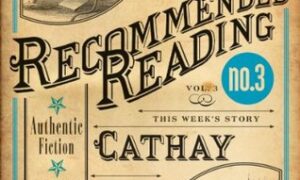 Look at Me by Jennifer Egan
Look at Me by Jennifer Egan
My rating: 3/5 cats



yay! friends read books togeeeether! and now i can finally link our reviews!
i wish i had read this when it first came out. and i am mad at myself for not loving this book as much as everyone else seems to have—when i read other reviews of it, i am jealous that it didn’t grip me as much as it did others, as much as her other books have gripped me.
there are definite strengths here. she demonstrates an uncanny and impressive cultural prescience; the way william gibson predicted the internet, she imagines social networks and reality t.v. before myspace, before facebook. and this book, published only a week after 9/11, has some eerie EERIE terrorist situations and general “america is corrupting and must be brought to its knees” sentiment flooding through it. and that prescience, like the trailer for this movie whose coolest part is now probably going to have to be cut because of horrific events makes the reader uncomfortable, knowing what we now know.
but for me, the multiplicity of storylines, while (mostly) individually fascinating, never really came together. i mean, in the most superficial way they did, as characters’ lives intersect unexpectedly, but thematically, there didn’t seem to be enough connective tissue. obviously image, perception, “we are who we say we are” certainly does recur, but i was hoping for the moment that makes the multiple narratives necessary, and it just never happened.
when you have as many characters and viewpoints as you do here, some first-person, some third-person, closure becomes a little tricky, and i think some characters did not reach a satisfying resolution. for example, moose, in his final scene. i don’t know how to read it. he seems to see it as a triumph, as a hopefulness, but he is subject to the same veiled perception as all of the characters in the book, perhaps more so, and it remains unclear. and charlotte’s (model-charlotte’s) pre-epilogue final scene is almost exactly like infinite jest, where we are left to fill in the gaps of “how did we get to here from there?” and i’m not sure i understand why ricky was given a discrete narrative, except that it gave her a chance to show off her storytelling skills. as a whole, it never really came together for me, although i liked so many individual parts so much that i feel a little sad only giving out three stars cats.
the parts that are good are very very good. if i may:
Even as a child, riding home with my mother and Grace after a Saturday in Chicago, new dresses and Frango mints from Marshall Field’s packed carefully in our trunk, lunch at the Walnut Room still alive in our minds—even then, when the drive between Rockford and Chicago had encompassed the entire trajectory of my known world, arriving at State Street’s outer reaches, at that point practically rural, had roused in me not the lilt of home but a flat dead drone inside my head. Even then, I experienced my return to Rockford as a submersion, a forfeiture of the oxygen of life. And with every subsequent return there had been a flattening, an incursion of dreariness, as I remembered what I had come from and faced it again.
Except now. Today, a silly joy flopped at my heart as I drove past the Clocktower Hotel with its “Museum of Time,” past the “Welcome to Rockford” sign, past the Courtyard Inn, the Holiday Inn, the Bombay Bicycle Club, Burger King, Country Kitchen, Red Roof Inn, Gerry’s pizza, Mobil, Century 21, Merrill Lynch, Lowe’s Gardening and Home Depot. I felt proud of Rockford for appearing on cue and playing its part with such conviction. I had told Irene it would be blighted, bloated, vacant, and now Rockford heaped upon us a quintessentially awful American landscape, the sort of vista that left Europeans ashen-faced: flat, hangar-sized windowless buildings; a swarm of garish plastic signs; miles of parking lot crammed with big American cars throwing jabs of sunlight off their fenders and hubcaps. It was a land without people, save for a few insect-sized humans sprinkled among the parking lots like stand-ins from an architectural scale model, humans diminished to quasi-nonexistence by the gargantuan buildings and giant midwestern sky, pale blue, dotted with tufts of cloud, vast and domineering as skies in Africa.
a triumphant homecoming it is not. but it is a recognizable one, and everything is so descriptively razor-sharp it makes me ache.
i loved great chunks of this book. and again, i wish i had read this when it first came out.
but let’s see what greg has to say.
read my book reviews on goodreads







